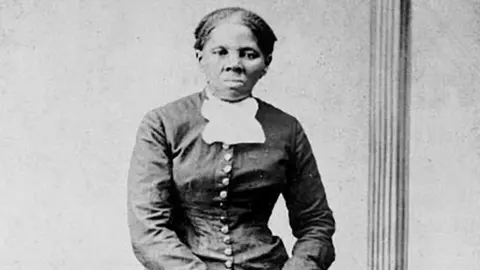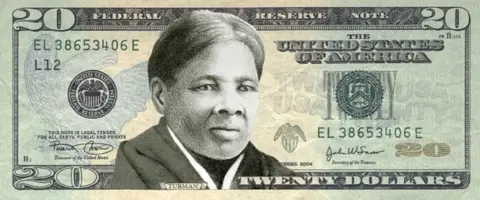New US $20 bill with anti-slavery activist Harriet Tubman delayed
 Reuters
ReutersA redesign of the $20 bill featuring anti-slavery activist Harriet Tubman, due to be unveiled next year, has been postponed until 2028, the US treasury secretary says.
Steven Mnuchin said the focus was on improving the banknote's security features and not changing the imagery.
Tubman's photo was due to replace that of former President Andrew Jackson, a slave owner, on the front of the note.
President Donald Trump has called the redesign "pure political correctness".
Harriett Tubman was born into slavery in the 1820s. After suffering a serious head injury, she escaped and helped to free more than 70 slaves through the "Underground Railroad", a network of anti-slavery activists and safe houses.
Speaking at a hearing of the House Financial Services Committee, Mr Mnuchin said "the primary reason" for the changes was for "counterfeiting issues", and that the department would focus on the image later.
"Based upon this, the $20 bill will now not come out until 2028. The $10 bill and the $50 bill will come out with new features beforehand," he added, declining to say whether he supported the decision to add Tubman's picture.

The proposed redesign, announced in 2016 under the Obama administration by then-Treasury Secretary Jacob Lew after months of public debate, would see Jackson's picture going to the back of the bill.
At the time, Mr Lew said Tubman was "not just a historical figure but a role model for leadership and participation in our democracy".
Mr Trump has previously expressed admiration for Andrew Jackson and on the campaign trail in 2016 he suggested that Tubman - whom he described as "fantastic" - would be better-suited for the $2 bill, a note that is not widely circulated, or another note.
The women last depicted on US notes were former first lady Martha Washington, on the $1 silver certificate from 1891 to 1896, and Native American Pocahontas, in a group image on the $20 bill from 1865 to 1869.
